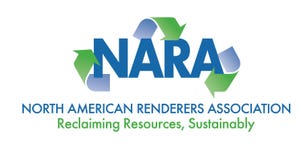ABS Global, Genes Diffusion join forces in France
Companies will share their Holstein genetic resources, including germplasm and embryos.
December 28, 2023

ABS Global and Genes Diffusion, a cooperative owned by more than 30,000 French cattle breeders, recently signed an agreement to share their Holstein genetic resources, including germplasm and embryos, a collaboration they say will enable customers to access a greater range of bovine genetics to suit their needs. Genes Diffusion is major player in Holstein and Charolais genetics, representing more than 30% of the national insemination market.
The alliance provides both companies with opportunities to create added value for farmers. Combining the scale and diversity of the two partners’ studs empowers progressive farmers to accelerate their genetic progress.
At a time when farming is under unprecedented pressure, the companies said providing customers with the opportunity to access a larger and more diverse portfolio of genetic solutions has never been more important.
“For more than 70 years, the Genes Diffusion Group has been working with Holstein breeders to provide them with the very best genetics. With so many challenges facing the livestock industry, it’s our duty to break new ground and look boldly to the future,” said Alain Guillaume, chairman of the Genes Diffusion board.
ABS Chief Operating Officer Nate Zwald commented: “We’re committed to helping farmers to produce high quality, affordable meat and milk, supporting our mission to nourish the world sustainably. ABS are delighted to be the chosen partner of Genes Diffusion and look forward to continuing to provide a diverse portfolio of genetics to support farmers”.
Access to varied genetics is essential when creating robust breeding programs to rear animals that live longer, produce more from less, and are feed efficient. ABS and Genes Diffusion have historically concentrated on selecting animals with contrasting genetic profiles, meaning that combining resources strengthens the diversity available. Leveraging this diversity enables both companies to align with customers’ breeding goals and better meet anticipated demand.
A central objective of the agreement is to maintain the partners’ respective breeding programs while providing reciprocal access to genetic resources. Each entity will retain its own program, its own objectives, and its own working procedures to combine the best of each genetic portfolio.
“I am confident and excited to build this project with our partner ABS. The future of Holstein farming looks bright,” said Guillaume.
You May Also Like



